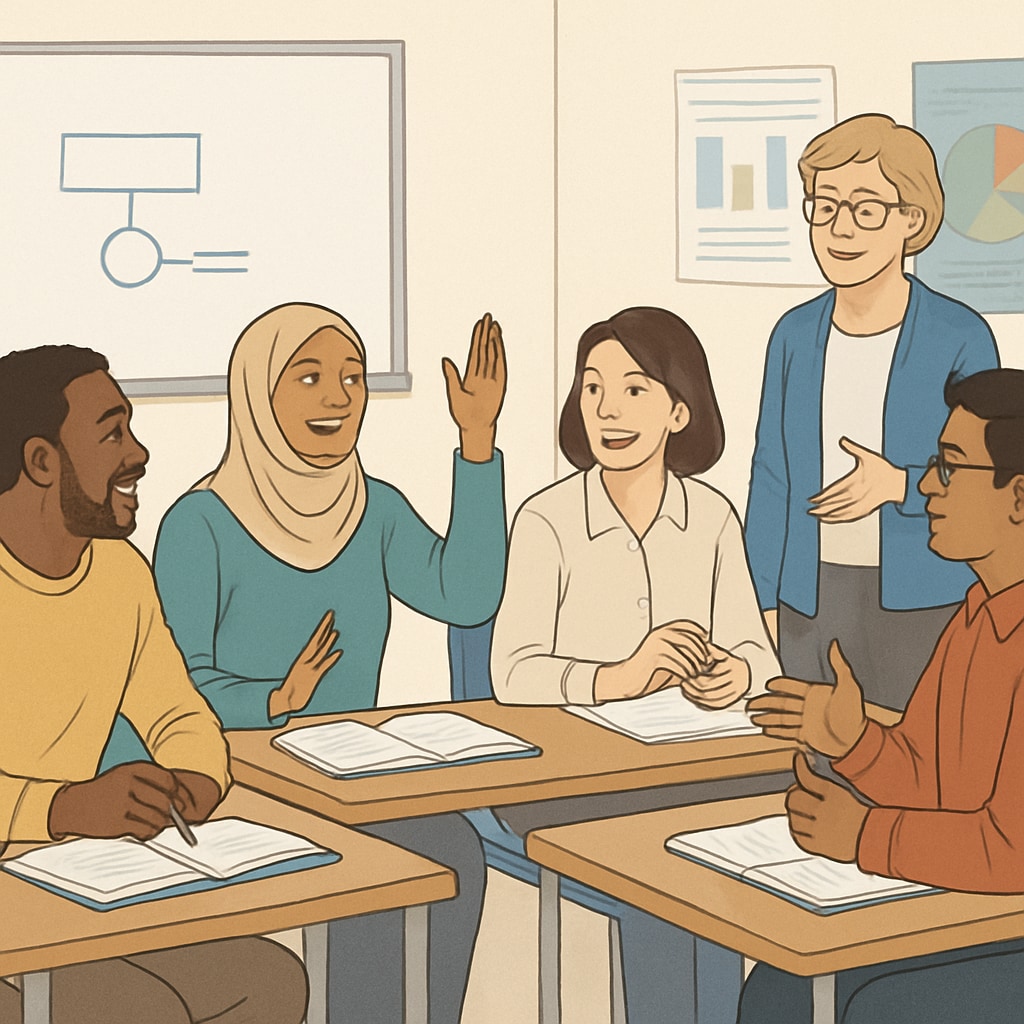For international adult learners, adapting to a new education system can be daunting. The challenges of “adult education, cultural adaptation, and basic knowledge” often stem from unfamiliar academic standards and cultural norms. In cities like New York, where diversity thrives, a range of resources is available to help bridge these knowledge gaps. This article provides actionable strategies for navigating these challenges and building a strong foundation for academic and cultural success.
Understanding the Challenges of Adult Learning and Cultural Adaptation
International adult students often face unique obstacles when entering a new education system. These include language barriers, differences in teaching methodologies, and gaps in foundational knowledge. For example, a student who excelled in mathematics in their home country may struggle with the terminology or problem-solving approaches used in American classrooms. Similarly, cultural nuances—such as participation expectations or group work dynamics—can create additional learning hurdles.
To succeed, learners must address both academic knowledge and cultural adaptation simultaneously. Building foundational skills in critical subjects like math, science, and language is essential, but equally important is understanding the cultural context of their new learning environment.

Top Resources for Adult Education in New York
New York City offers a wealth of resources tailored to international adult learners. Whether you prefer in-person classes or virtual platforms, these options can help you develop the skills you need:
- Community Colleges: Institutions like CUNY (City University of New York) offer affordable adult education programs in foundational subjects. Many of these colleges provide ESL (English as a Second Language) courses alongside academic classes, ensuring language skills grow in tandem with knowledge.
- Online Learning Platforms: Websites like Khan Academy and edX offer free or low-cost courses in math, science, and other essential subjects. These platforms are especially useful for self-paced learners who need flexibility in their schedules.
- Community Centers: Local organizations, such as YMCA and immigrant support groups, provide workshops and tutoring sessions. These programs often focus on practical skills like resume writing, public speaking, and basic computer literacy.
- Libraries: Public libraries in New York, such as the New York Public Library (NYPL), host free classes and study groups. These sessions are a great way to meet other learners and practice cultural immersion.
By leveraging these resources, international adult learners can build a strong academic foundation while gaining confidence in their new environment.

Building a Supportive Learning Community
Another critical aspect of adult education is creating a network of support. Learning communities can provide motivation, accountability, and a sense of belonging. Here are some ways to connect with others:
- Study Groups: Join or form study groups with peers who share similar goals. These groups can foster collaboration and provide diverse perspectives.
- Mentorship Programs: Seek guidance from mentors who understand the challenges of transitioning to a new education system. Many community organizations and colleges offer mentorship opportunities.
- Cultural Exchange Events: Participate in events that celebrate cultural diversity. These gatherings can help you practice language skills and build cross-cultural friendships.
Engaging with a community not only enhances learning but also helps with cultural adaptation, making the journey less isolating and more fulfilling.
Conclusion: Bridging the Gap to Success
For international adult learners, the journey of “adult education, cultural adaptation, and basic knowledge” is both challenging and rewarding. By utilizing the abundant resources available in New York City—such as community colleges, online platforms, and learning communities—you can bridge knowledge gaps and thrive in your new environment. Remember, education is not just about acquiring knowledge; it’s about embracing a new way of thinking and growing as a global citizen.
Whether you are building foundational skills or mastering cultural nuances, every step forward is a step toward success. Start exploring the resources around you, and take charge of your learning journey today.
Readability guidance: Short paragraphs and clear subheadings improve readability. Incorporating lists and transition words ensures an organized structure. Active voice and accessible language enhance engagement.


